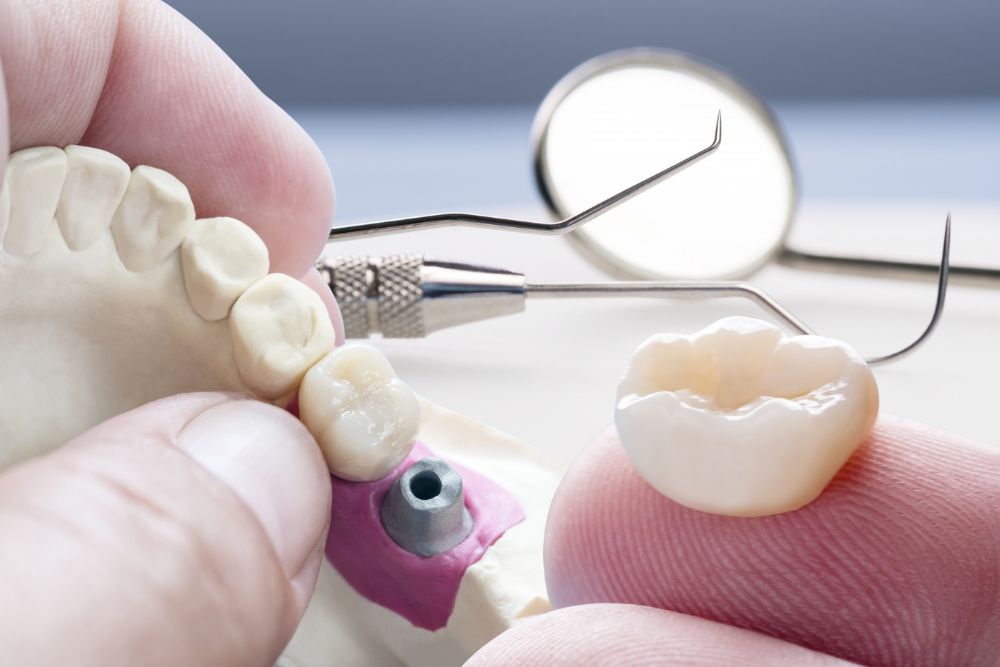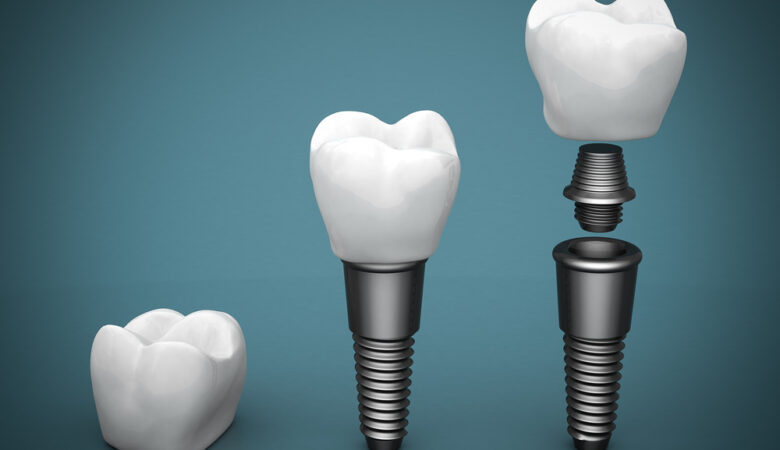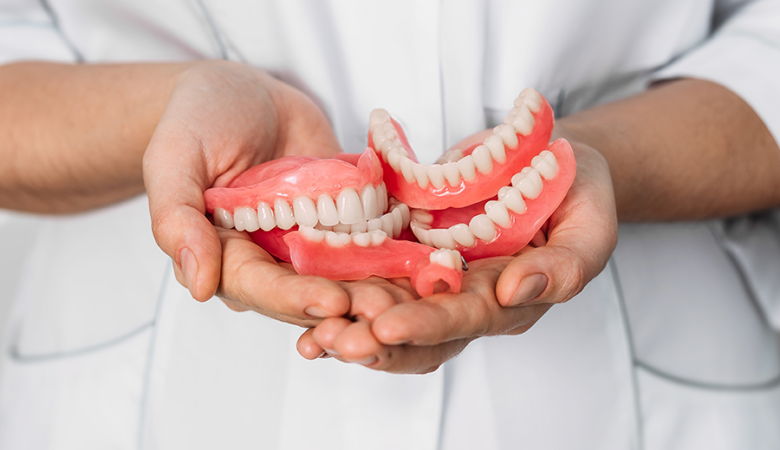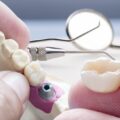A radiant smile is an important business card, and your healthy teeth play a crucial role. Unfortunately, teeth are not indestructible and occasionally dentures are necessary to restore your dental health and aesthetics. A prominent procedure in the field of dentures is the use of dental crowns.
What are dental crowns?
Dental crowns are custom-made caps or shells that are placed over a damaged or weakened tooth. Their main purpose is to restore the tooth to its natural shape and function while protecting it from further damage.
Why are dental crowns needed?
There are several reasons why dental crowns may be necessary:
Caries damage
If a tooth is severely affected by decay and a simple filling is not enough, a crown may be necessary to stabilize and restore the tooth.
After root canal treatment
After root canal treatment, the treated tooth may be weakened. In such cases, a crown is used to restore the strength of the tooth and ensure its functionality.
Aesthetic improvement
Dental crowns are often used for aesthetic reasons to beautify discolored, irregular, or chipped teeth. They help create an aesthetically pleasing smile.
The process of making dental crowns
The process for making and placing dental crowns is typically as follows:
Tooth preparation
First, the affected tooth is ground down slightly to make room for the crown. This step is important to ensure the crown fits well.
Imprints and customization
We then take precise impressions of your prepared tooth and the surrounding area. These impressions serve as the basis for the individual production of your crown.
Temporary crown
While the custom crown is being made, you will receive a temporary crown to protect your tooth from damage and maintain its function.
Insertion of the crown
Once the custom crown is complete, it is permanently placed on your tooth. Your dentist will check the fit and make sure the crown sits well.
Care and durability of dental crowns
Caring for dental crowns is uncomplicated. You should maintain your usual oral hygiene routine, which includes regular brushing and flossing. Additionally, regular dental visits are crucial to ensure your crown remains in optimal condition.
The durability of dental crowns can vary significantly depending on care, the material used, and your individual oral condition. However, in general, dental crowns can last for many years, and in some cases even decades. This means they are a long-term solution to improve both the health and aesthetic appearance of your teeth.
It is important to note that the lifespan of your dental crown directly depends on your oral hygiene and behavior. Careful care, regular check-ups with your dentist, and avoiding harmful habits like grinding your teeth or opening things with your teeth can help extend the life of your crown.
Reasons for dental crowns
Dental crowns are dental restoratives used in various situations to restore the health and functionality of a damaged tooth. They offer a tailored solution for patients with different dental needs.
Comprehensive caries control
A common reason for dental crown placement is advanced tooth decay. If tooth decay has damaged the tooth so badly that a simple filling is not enough, a crown may be necessary. The crown covers the entire tooth, protecting it from further decay and restoring normal chewing and biting function.
After root canal treatment
After a root canal treatment, the treated tooth may be more susceptible to fractures and cracks. In such cases, a crown can help restore the strength and integrity of the tooth. It protects the tooth from external influences and prevents it from becoming infected again.
Aesthetic improvement
Dental crowns are also used for aesthetic reasons to improve the appearance of teeth. This is particularly relevant if teeth are discolored, misshapen or damaged. A crown can significantly enhance a patient’s smile and give them more confidence.











